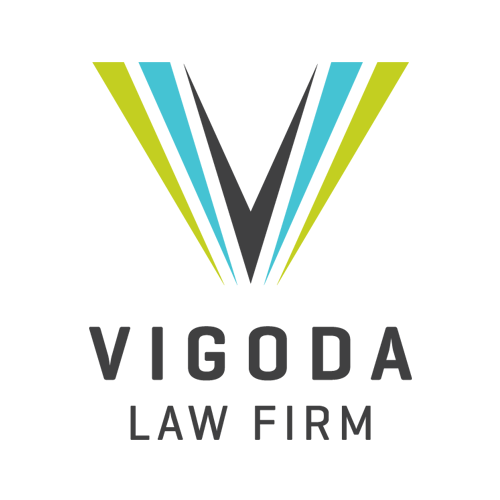Green Cards
What does it mean to have a Green Card?
Having a Green Card means you are a "lawful permanent resident" of the United States. Lawful permanent residents may live and work freely in the US — indefinitely. They do not need a visa to enter the United States after traveling abroad, although they must clearly maintain their residence in the United States in order to keep their Green Card. Permanent residents must also pay US income tax on income earned anywhere in the world.
What's the difference between having a Green Card and US Citizenship?
Although Green Card holders may live and work in the United States permanently, their rights are still limited as compared with those of US citizens. First, it is possible to lose your Green Card by failing to maintain your residence in the United States or by committing a serious crime. US Citizenship, on the other hand, cannot be taken away except in exceedingly rare circumstances. Second, Green Card holders are not eligible for all the public benefits that are available to US citizens. Green Card holders are also restricted from running for public office and from certain types of government jobs. Finally, only US citizens can vote in elections.
What is the process involved in obtaining a Green Card?
Some Green Card applications are made from outside the United States through a process called Immigrant Visa Processing, while others are made from inside the country through a process called Adjustment of Status. The location from which the application can or should be made depends on the applicant’s individual circumstances.
The contours of the Green Card process also vary widely with each particular case. Depending on the basis for the Green Card application and the applicant's immigration history, the process of applying for a Green Card can take anywhere from a few months up to many years, and can involve anywhere from one step to dozens of steps and phases.
On what basis can I apply for a Green Card?
These are the four most common ways to obtain a Green Card:
Family
Work
Following a grant of refugee status/asylum or another humanitarian status
Green Card Lottery
Family-based Green Card applications
To obtain a Green Card through family, an applicant must be a spouse, child, parent, or sibling of a US citizen or a spouse or unmarried child of a Green Card holder. The length, complexity, and even feasibility of the application process will vary tremendously depending on the type of family relationship on which the application is based, as well as the applicant’s immigration history.
Employment-based Green Card applications
For those who wish to obtain a Green Card through work, US law provides for five categories of employment-based immigrants:
Persons of extraordinary ability in the arts, sciences, education, business, or athletics; outstanding professors and researchers; and multinational executives or managers who have been employed abroad in that capacity with the sponsoring company for at least one out of the last three years before entering the US.
Persons holding advanced degrees and persons with exceptional ability in the arts, sciences, or business.
Skilled workers, professionals, and other workers.
Special immigrants, such as religious workers.
Persons who invest $1 million (or $500,000 in certain “targeted employment areas”) in a new commercial enterprise that employs at least 10 full-time US workers.
The specific requirements of each of the above categories and subcategories, as well as the application procedures involved, vary widely. The applicant’s personal and professional circumstances, country of origin, and immigration history can also significantly affect the eligibility of the applicant as well as the timeframe and complexity of the process. The total number of employment-based Green Cards available in the United States each year is 140,000.
Following a grant of refugee status/asylum
Refugees and asylees are those who have received protection in the United States after proving a well-founded fear of persecution in their home countries on the basis of their race, religion, nationality, political opinion, or membership in a particular social group. Refugees may apply for a Green Card one year after entry to the United States, and are in fact required to do so. Asylees may apply for a Green Card one year after their grant of asylum.
Green Card Lottery
The Diversity Immigrant Visa Program, also known as the “Green Card Lottery,” was established by Congress in 1990 to draw a greater mix of immigrants to the United States. Each year, citizens of countries with low rates of immigration to the US over the previous five years may enter into this “lottery” for a chance to apply for one of 50,000 Green Cards. Applicants must have a high school education or two years’ work experience within the previous five years in an occupation requiring at least two years of training or experience to perform. Registration for the program opens in early October of each year.
Registry
A few other paths to permanent resident status exist, which apply to a very small percentage of immigrants. A person who entered the United States before January 1, 1972 and has been living in the US continuously since then — and can prove both of these facts — may apply for a Green Card under the Registry category. Further, congressional enactments or private legislation may provide a route to permanent resident status for specific categories of individuals.
Cancellation of Removal
Finally, Cancellation of Removal is a form of relief available only to individuals who are in immigration court defending themselves from deportation. To qualify for a Green Card under this category, an applicant must show that he has been living in the United States for at least ten years and that his removal would cause exceptional and extremely unusual hardship to his US citizen or permanent resident spouse, parent, or child.
"Hannah is a true gift."
“She helped my husband and I through the entire immigration process before our wedding. Hannah is extremely professional but equally personable, qualities that were so valued during this stressful time.”
— J.T.
"She was very thorough."
“My employer sent me to the USA to gain experience in the US market. Hannah did a great job setting up all the documents that were necessary for the authorities to grant me a visa. I can recommend her without reservation.”
— S.K.
"I wouldn't do it without her."
“Hannah is a very professional and experienced immigration lawyer. Her passion for helping people reflects in every case she handles. She pays close attention to details, which was important in my application. I was very fortunate to have found her.”
— M.W.
Contact us for more information.
Vigoda Law Firm, 5 W. Hargett Street, Suite 700, Raleigh, NC 27601 Tel: 919.307.7817 Email: info@vigodalaw.com

